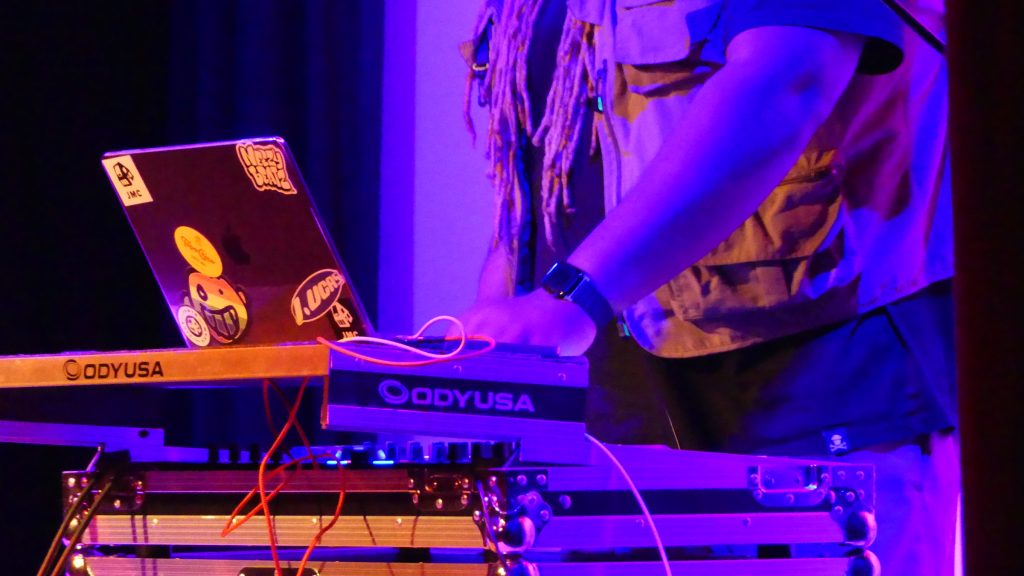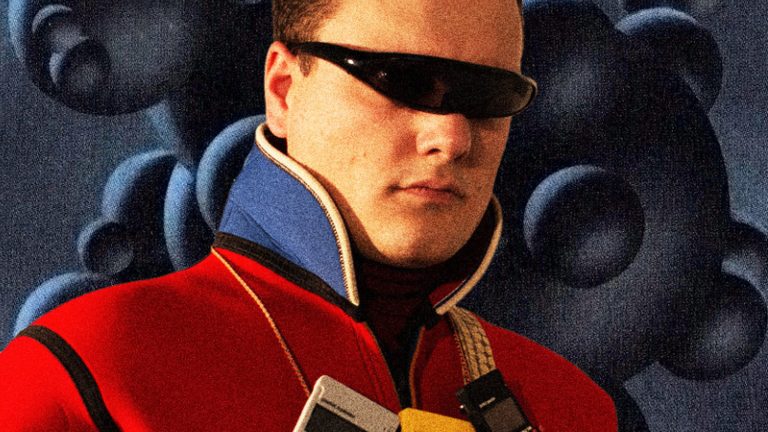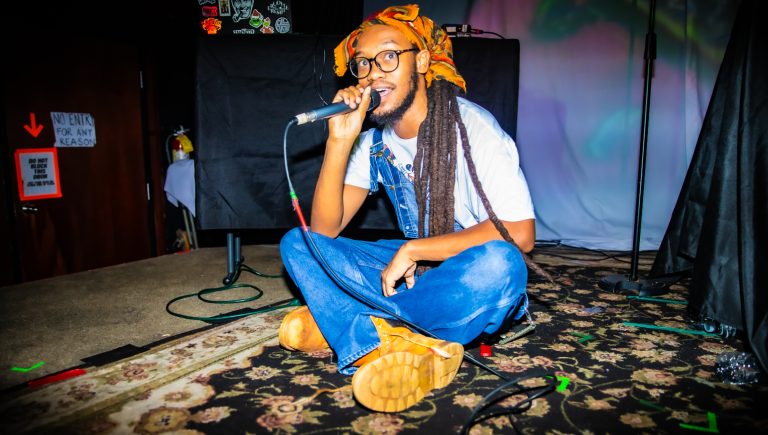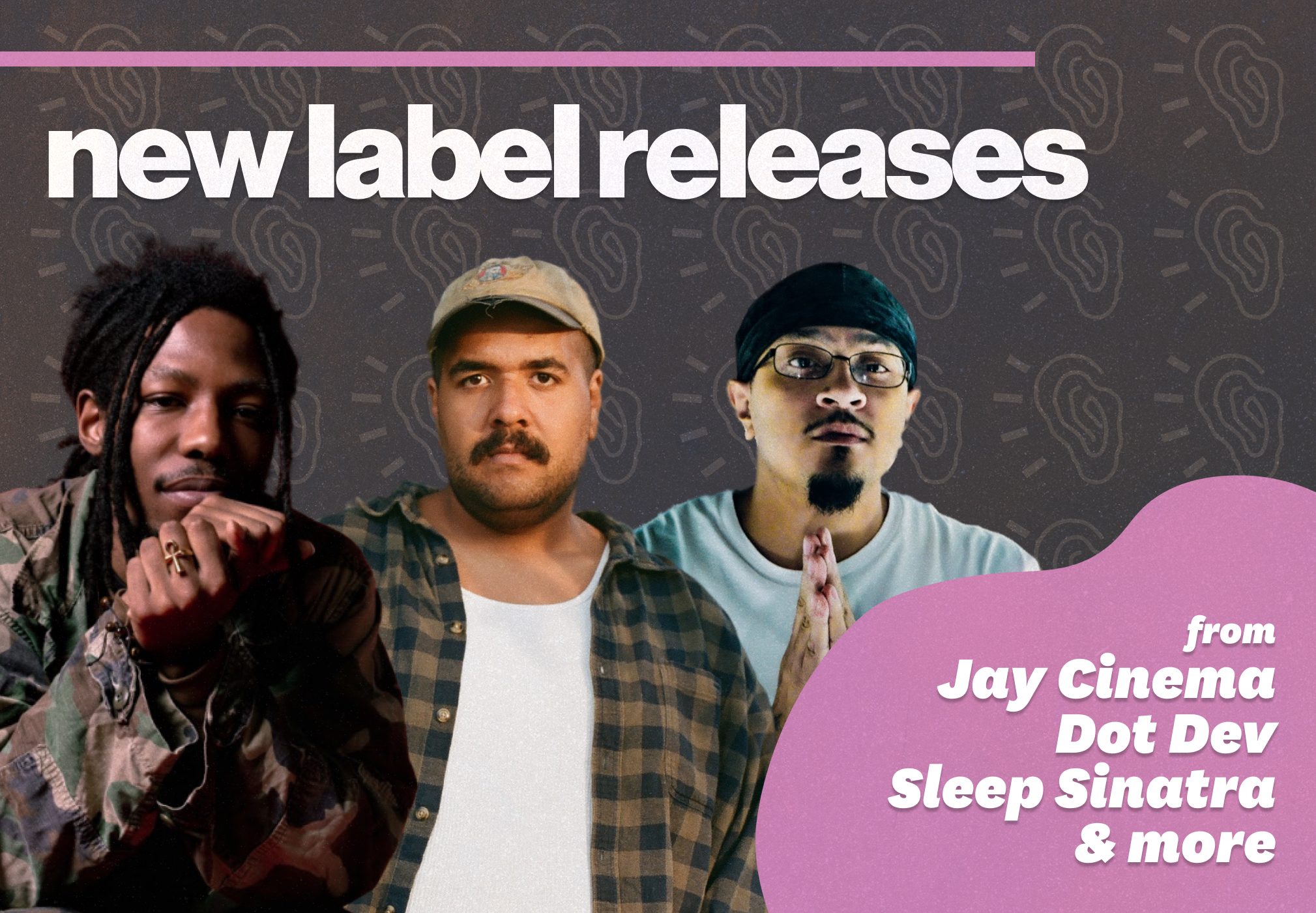Walking into The Rockwell in Somerville on the night of April 19th, I quickly realized Malik Elijah’s Vintage Nostalgia would be quite different from the live performances I was used to. This was my first time at The Rockwell, for starters, and the long column of steps leading into the venue felt like descending into a mysterious cavern rather than your typical cramped house show or dingy bar.
Very quickly, I caught on to the most unique feature of this space: the stage. At most local shows, the stage is a standard outcropping at the front of the room, perhaps slightly raised and just notable enough for each performer to make their own. But at The Rockwell, which is primarily known as a comedy club, the stage was enclosed inside its own black box theatre. Now, as a fan of the performing arts and an usher at a variety of Boston theatres, I’m quite familiar with black box spaces—named for being small, “box” theatres tend to fit less than 200 people or so, easily moldable to alternate space setups. They can be the perfect places to host shows with a smaller cast and more intimate themes. But for a straight music show?
First up on the night’s docket was Rilla Force, spinning up a chill DJ set. A one-man powerhouse, Rilla does it all. From producing to songwriting to audio engineering, he likes to keep himself busy. That night, though, his focus was on keeping the vibes up, both as the space filled in and between sets. Much of the music was electric with an R&B focus, the perfect mix to prepare the growing crowd for the performances ahead, but not disallowing people to hang in this transitional period. I distinctly recall the exact moment Rilla won me over, as I heard the groovy transition into my favorite Amaarae song, “Big Steppa.” An instantly comfortable atmosphere.
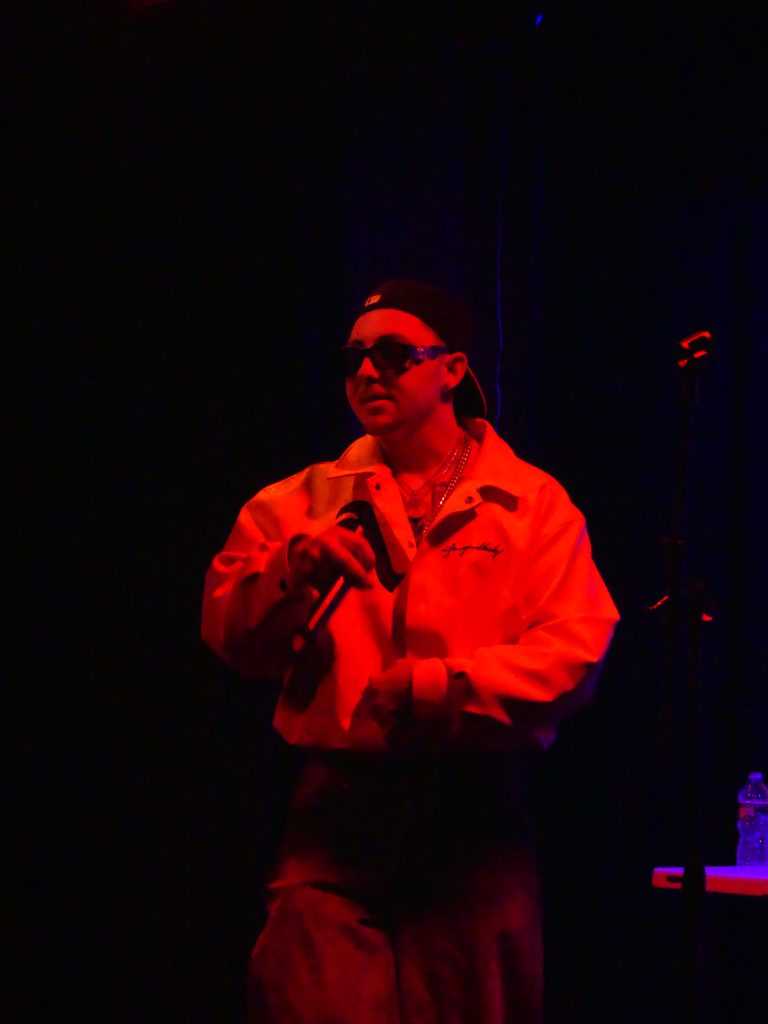
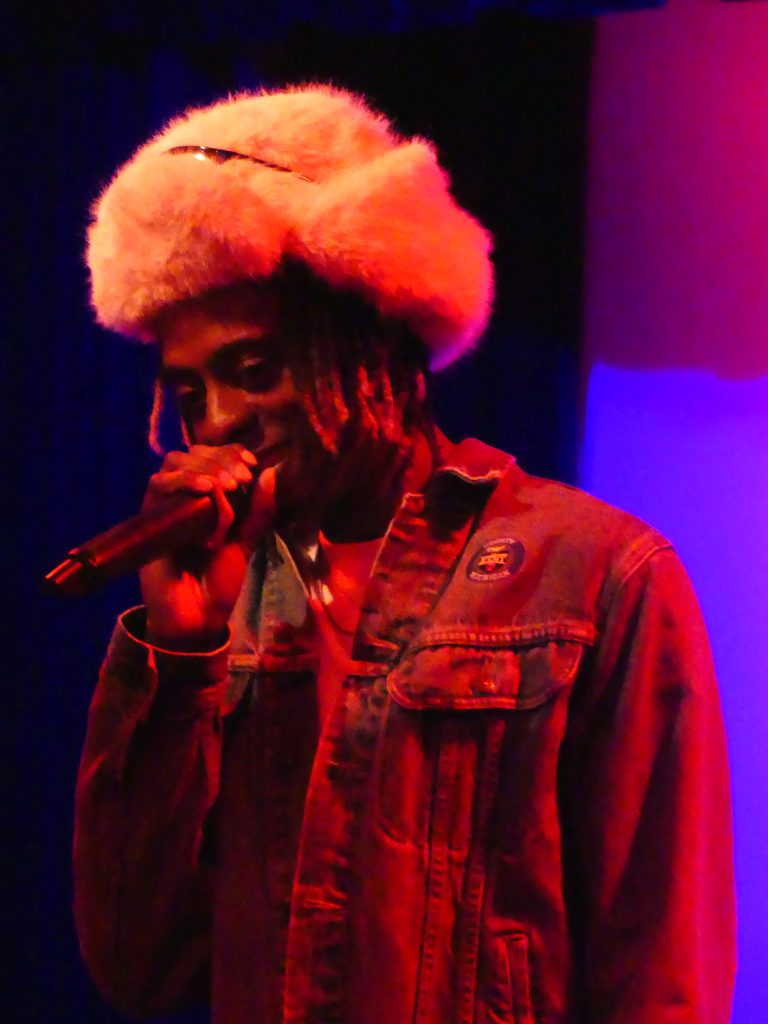
As Rilla’s set began to fade out, it became apparent it was time to brave the black box, no matter how wary I was. Most people opted to sit down in the plush theatre seats, so I reluctantly joined. Caso, the first singer of the night, definitely had the hardest job in actually getting people out of those seats. The self-proclaimed “most famous guy from Weymouth” was clearly somewhat put off by the space, making little quips at how unusual it was compared to others he had performed in, most notably Jimmy Kimmel’s. Audience members were still thrown by this setup, trying to determine the best way to interact with rappers in this odd arena. Some people were half-standing at Caso’s demands for us to “get into it!” Others were seemingly stuck to their chairs, as if seeing some professional, straightlaced production. But with most of Caso’s songs portraying a gruff cavalier attitude, our uncertainty only fed into his impassioned performance. Caso’s music is characterized by steady backbeats, allowing him to passionately spit his lyrics over a healthy dose of autotune to smooth out some of the rawer edges of his verses. His hit anthem, “Thanks For Nothin,” ended the set, and he performed with a bite, enhancing his stage presence. As he posed with his feet up on the speakers surrounding the stage, strutting around like someone in a much bigger venue, I couldn’t help but imagine how perfectly he must have owned the Jimmy Kimmel set.
After Caso, the goal seemed to be to get the crowd out of the black box seats. The next performer, Swooli, had a good transitional set for this purpose. Swooli’s music is experimental, playing with electronic sounds and layering, like the extensive voices in his single “Carpet Dreaming.” While this isn’t always the best for live performances, his personal energy made up for it. He had a sort of chaotic control, letting each song almost possess him during the act. He often would rise on his tiptoes, eyes closed and fully immersed in the music. One of my standout moments from the night was his song “Bad Boys,” the playful closing track from his EP. A reference to the theme from “Cops” by Inner Circle, Swooli’s take is much less hip-hop and more pop, deeming him and his “crew” as “too cool” for the law. It was also his closing number for the night, which felt particularly appropriate with how well it captured his overall presence as an artist—mischievous, but full of heart.
By the end of Swooli’s set, about half the crowd was out of their seats, milling around the stage. But for the stragglers, next up was Clark D, demanding we all come down and stand. To keep people from migrating back to their seats, he taught us the choruses to at least half of his setlist, insisting we sing along. Many of his songs allowed for this with instantly catchy bits, repetitive and simple enough to get stuck in your head for the rest of the night. His effortless flow creates a more modern feel to his rapping, with an immediate ease to himself, feeding off our mood and giving it right back to us. He deftly released pun-filled lines like those from his song “GOAT FARM”: “I be making goat cheese, I think I’ll call it goat parm.” A multi-time Grammy-nominated producer, Clark D is used to working with the many talented creatives around him. In fact, we were unexpectedly witnesses to one of his longest collaborators that night. Earlier, I noticed a group of people around me who knew pretty much every lyric to Clark’s music, specifically one woman next to me. With her extremely trendy appearance—indie outfit complete with a fur hat—she could have been just another audience member. But suddenly, in between songs, she joined him on stage and the two conspired quietly for a moment. Then, they both spun around, and he made an impromptu introduction—she was his sister, who makes music under the name Kei and has featured on many of his songs! They then continued to perform their catchy single “IT’S A STICKUP!” together, with her easily sliding into his presence.
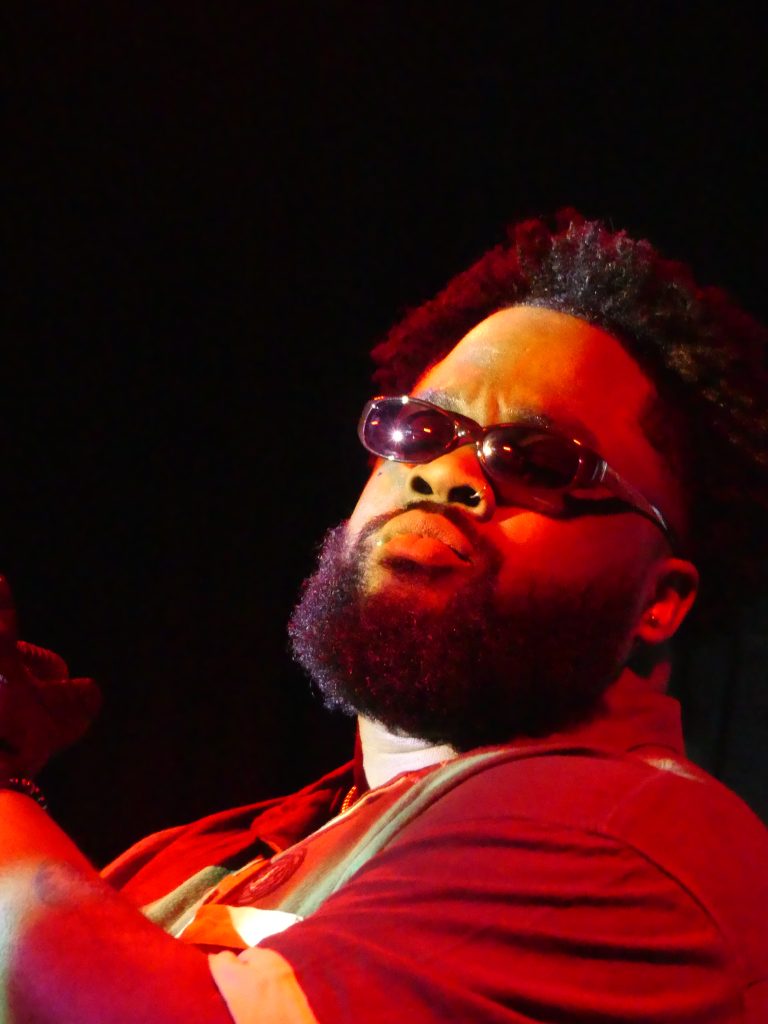
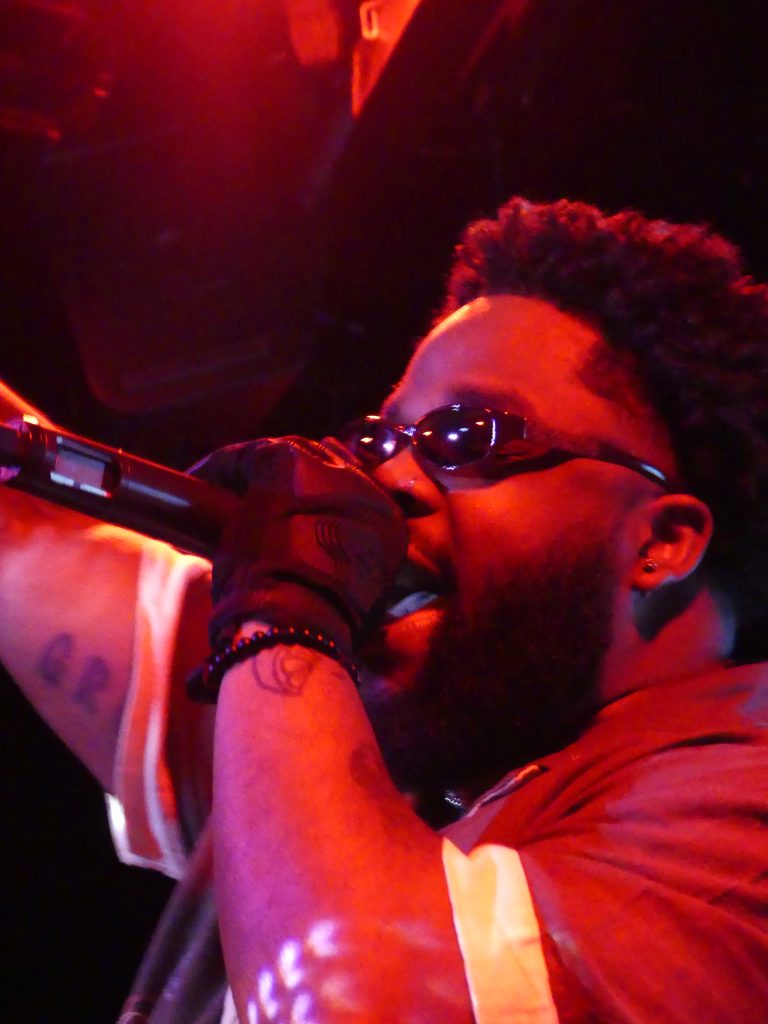
While I enjoyed all the openers, Vintage Nostalgia was undeniably Elijah’s night. Once he took to the stage, the crowd blossomed—the largest it had been and certainly the most dynamic. People instantly ceased conversation at his arrival, breaking into cheers with an almost reverent intensity. The feeling was well-deserved, as Elijah had a certain suave confidence about him, immediately tightening us in a crescent moon of excitement around him. Elijah describes himself as pulling “inspiration from his peers and predecessors to create his own current,” which feels particularly apt. The night was full of shoutouts to the Boston community and his loved ones, yet his performance remained consistently in the spotlight. His music had a more controlled vibe than the other performers, more similar to some of the lo-fi sounds Rilla spun to open the show. Instead of showy attitudes or tongue-twister lyrics, Malik’s songs were introspective, self-confrontational yet laidback. But he really let himself loose by the end of his set, spitting both figuratively and literally on the mic. Many of his songs played with the production in intriguing ways to a music nerd like myself, like the end of the opening track of VINTAGE NOSTALGIA, “FLAWLESS VICTORY” beeping out a secret message in Morse code or a church choir meshing with the main backing track in “HIGHER.” The project’s message was the real thing that stuck with me after the show, though, with demands to keep chasing the dream while staying true to yourself. With odes to his girlfriend and the other performers in the show constantly, Elijah reminded me how possible it is to stay humble while achieving success at every opportunity he can.
I always feel like a budget Cinderella at the end of these longer shows, running off before the night truly ends so I can catch the T before it closes. I’m sure the joy built up in the room that evening kept riding high, but it was satisfying to head out with the sounds of Elijah and the hypest point of the night on my heels. While The Rockwell certainly didn’t feel like the ideal venue for this kind of show, this group certainly knew how to utilize the space to the best of their ability, and I relished getting to bask in a public display of their obvious bond.

